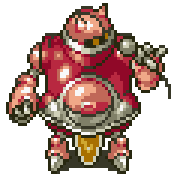
Gato is a fan-favorite character, and I actually get asked about him quite a lot. I’ve always been curious to learn more about him myself, so let’s check him out!
Gato’s Name
Many characters in Chrono Trigger had their names changed during the English localization. Gato had his name changed too – he was originally known as “Gonzalez” in Japanese:
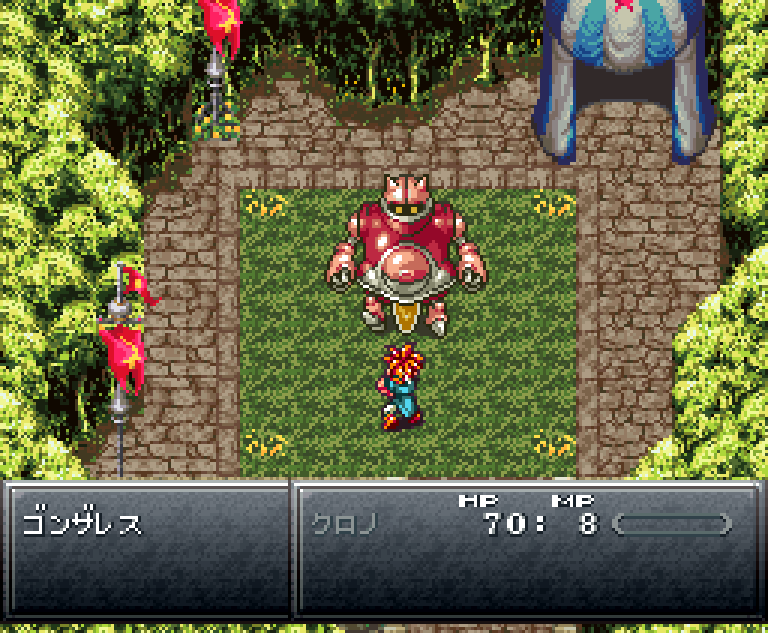 | 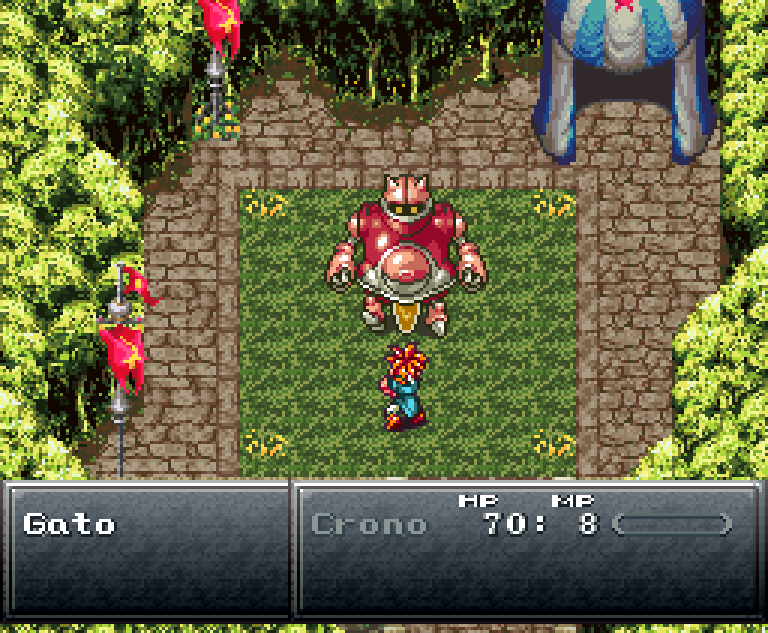 |
| 'Gonzalez' in Japanese | 'Gato' in English |
I always assumed the robot’s name changed to “Gato” simply because “Gonzalez” was too long. Yet I never understood why he was named “Gonzalez” in the first place, or why “Gato” was specifically chosen as the replacement.
A while back I was researching some completely unrelated stuff when I ran into the name “Gato Gonzalez” again and again. It turns out that there was a famous boxer in the 1970s named ”El Gato” González, and he became a household name for a short while in Japan when he lost the WBC Lightweight Title to Guts Ishimatsu in 1974.
Ishimatsu’s victory over Gonzalez was a historic moment for Japan and even spawned a major cultural phenomenon known as the ”Guts Pose”. Although Ishimatsu took the spotlight, the event also firmly placed the “Gonzalez” name in the public consciousness.
This piece of history explains why the fighting robot was named “Gonzalez” to begin with, and why he was renamed “Gato” in the English release. On top of that, it also explains why the robot uses a boxing glove attack, which always seemed like a silly and random thing to me until now. Another cool side effect of the name change is that “Gato” – which is Spanish for “cat” – explains the robot’s cat-like ears more clearly than the original name.
Incidentally, it appears this is also why the name “Gonzales”/”Gonzalez” is sometimes given to tough fighters in other Japanese entertainment, especially when it comes to sporting events. A few Gonzalii that come to mind include:
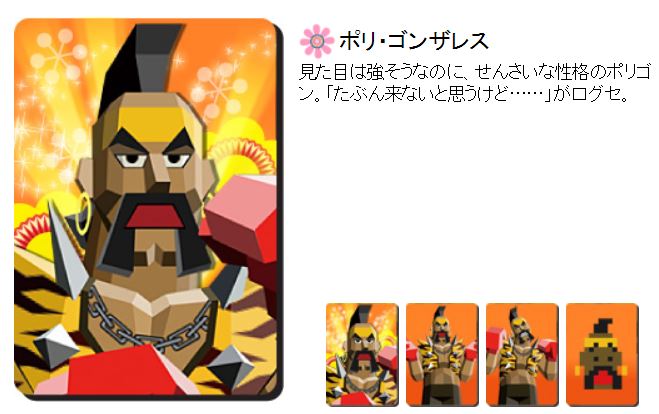
Gato’s Song
Gato sings a song as soon as you talk to him. There’s even background music that matches the lyrics… sort of.
| Japanese Lyrics | Basic Translation | English Lyrics (SNES) |
| ā gonzāresu | Ahh Gonzalez | They call me Gato ♪ |
| ōre wa tsuyoi | I am strong | I have metal joints ♪ |
| ōre ni kattara | If you beat me | Beat me up ♪ |
| jūgo pointō | 15 points | And earn 15 Silver Points ♪ |
As we can see, the lyrics changed slightly in translation, but the changes are pretty minor besides the whole name thing.
I always had trouble getting the English lyrics to match the song just right, but then again I have zero musical talent so that’s probably my own fault. Still, I have an easier time matching the Japanese lyrics with the tune. If you’re curious, here’s how it sounds in Japanese, as seen in the official Chrono Trigger OAV:
Gato’s Translation Legacy
Chrono Trigger received a brand new English translation when it was re-released on the Nintendo DS in 2008. It appears the “Gato” name remains in this new version, and the original Super NES lyrics were carried over too, but with a few tweaks to help the lyrics fit the tune:
This matches with how the DS translator re-translated Final Fantasy VI too: popular terms and lines were often kept unchanged from the Super NES version, or were at least touched up slightly to improve things.
Thoughts
Although Gato plays such a tiny part in Chrono Trigger, he was given a surprising amount of attention during translation. I’ve had many professional projects of my own that required writing translations to fit with music, so I can almost “see” the Super NES and DS translators sounding out syllables while playing the song over and over. It’s always a fun process and really rewarding when you see fans sing along. But it also means the songs get stuck in your head for a while! Gah!
On a different note, I wonder what name Gato goes by in other languages and/or how his song was changed. That sounds like an article for another time…


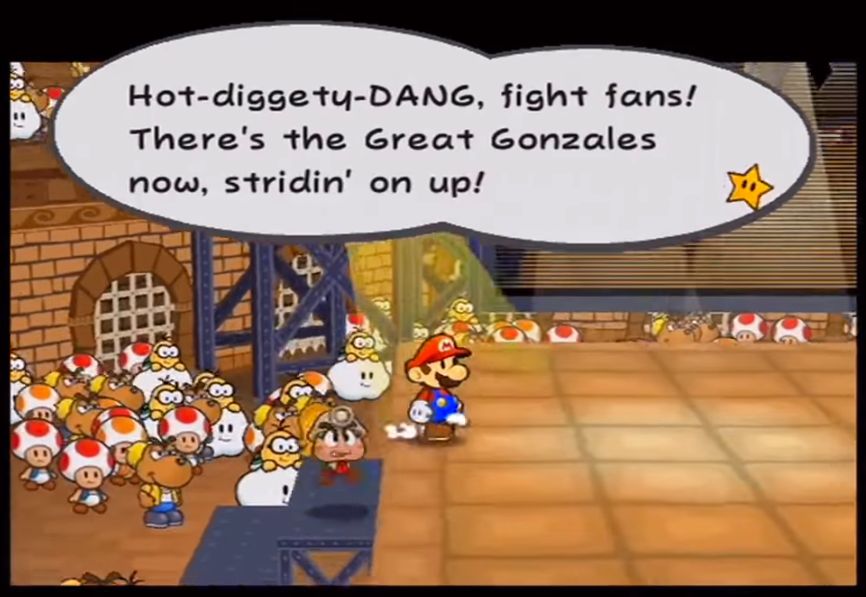

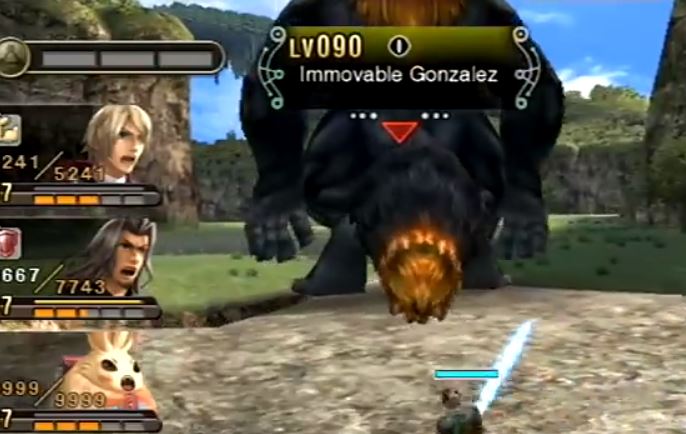
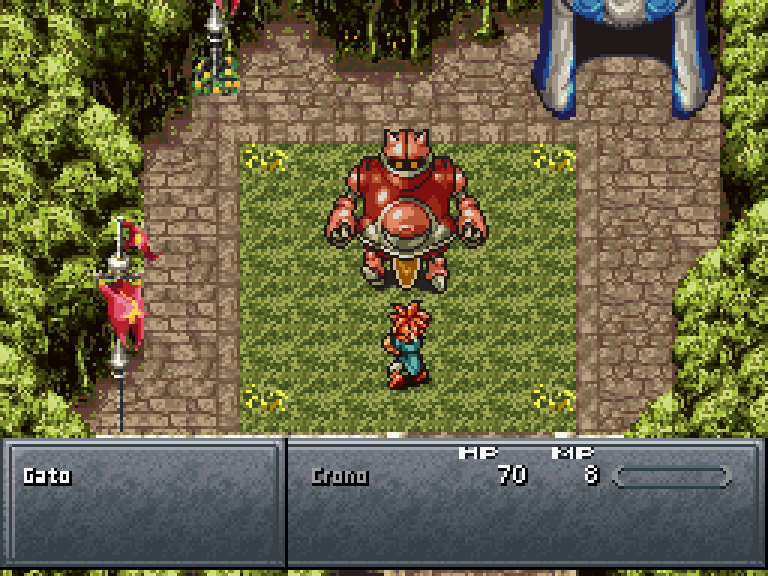
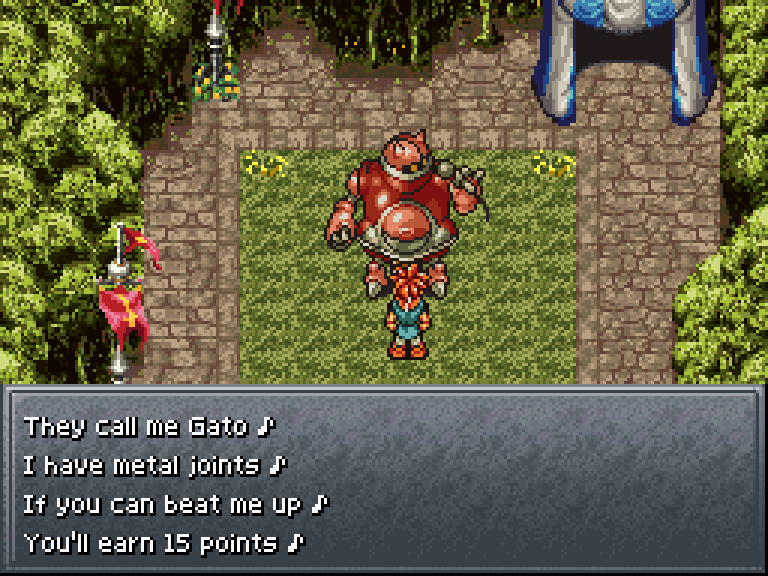
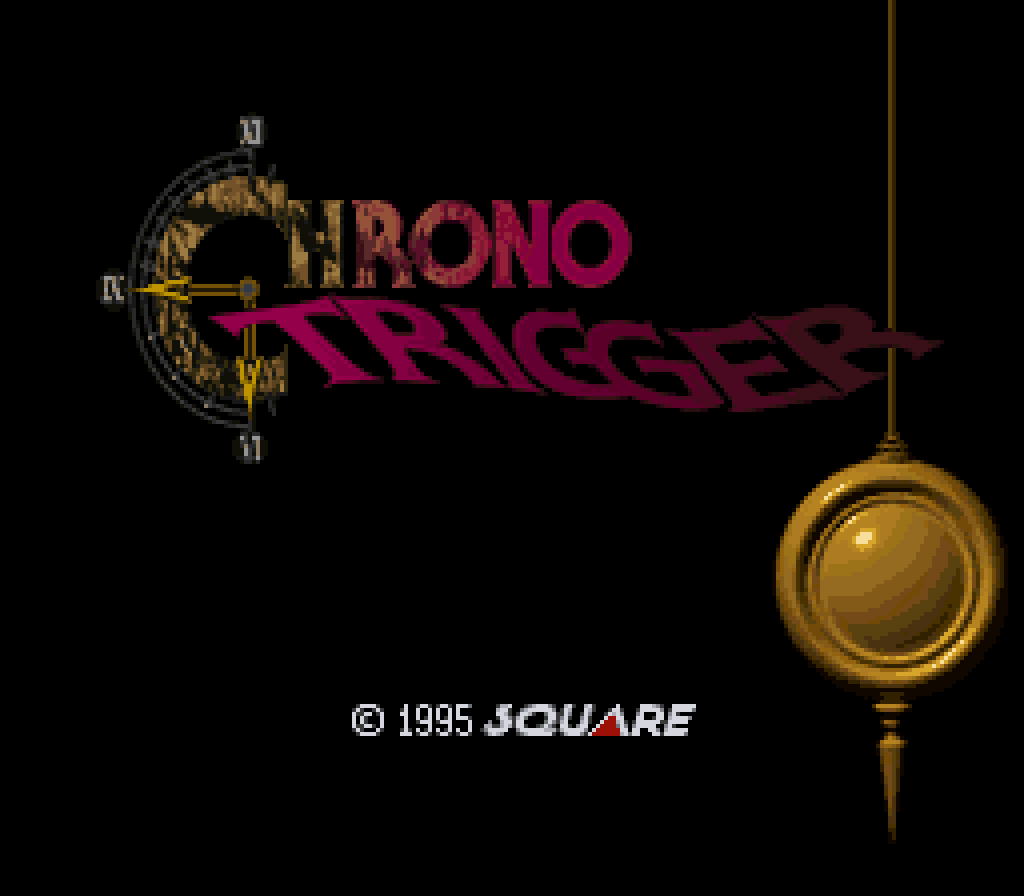
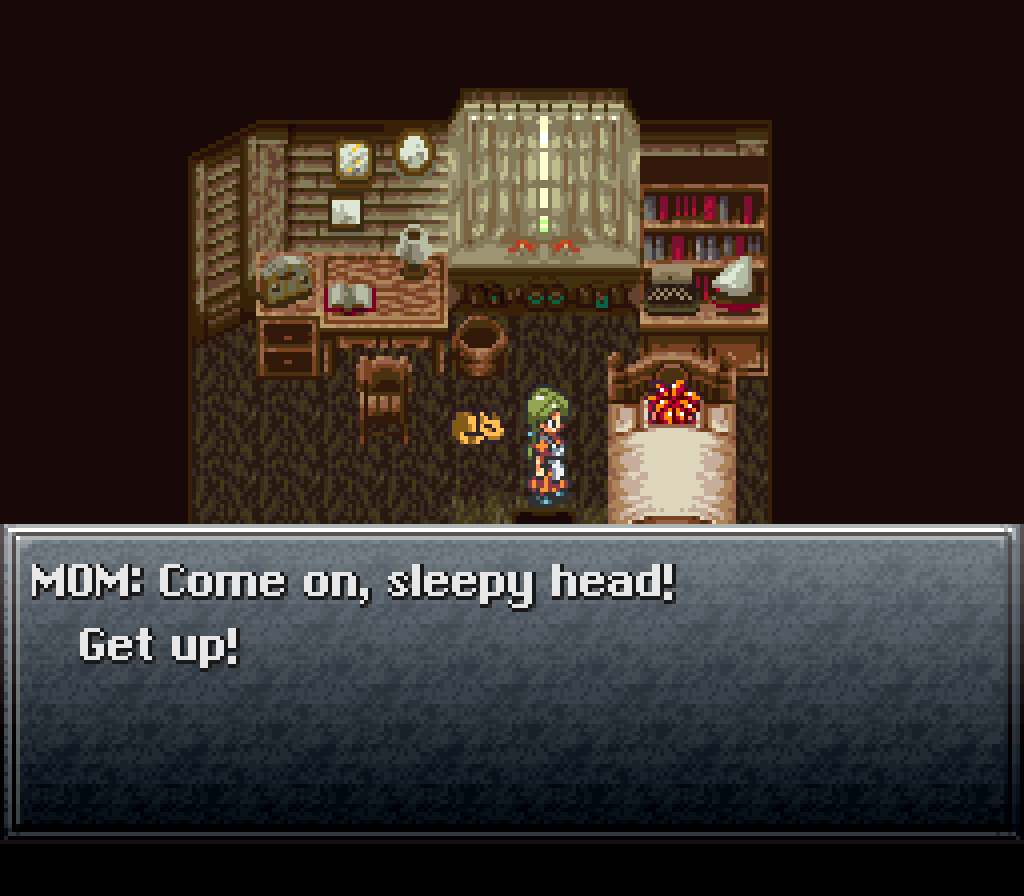
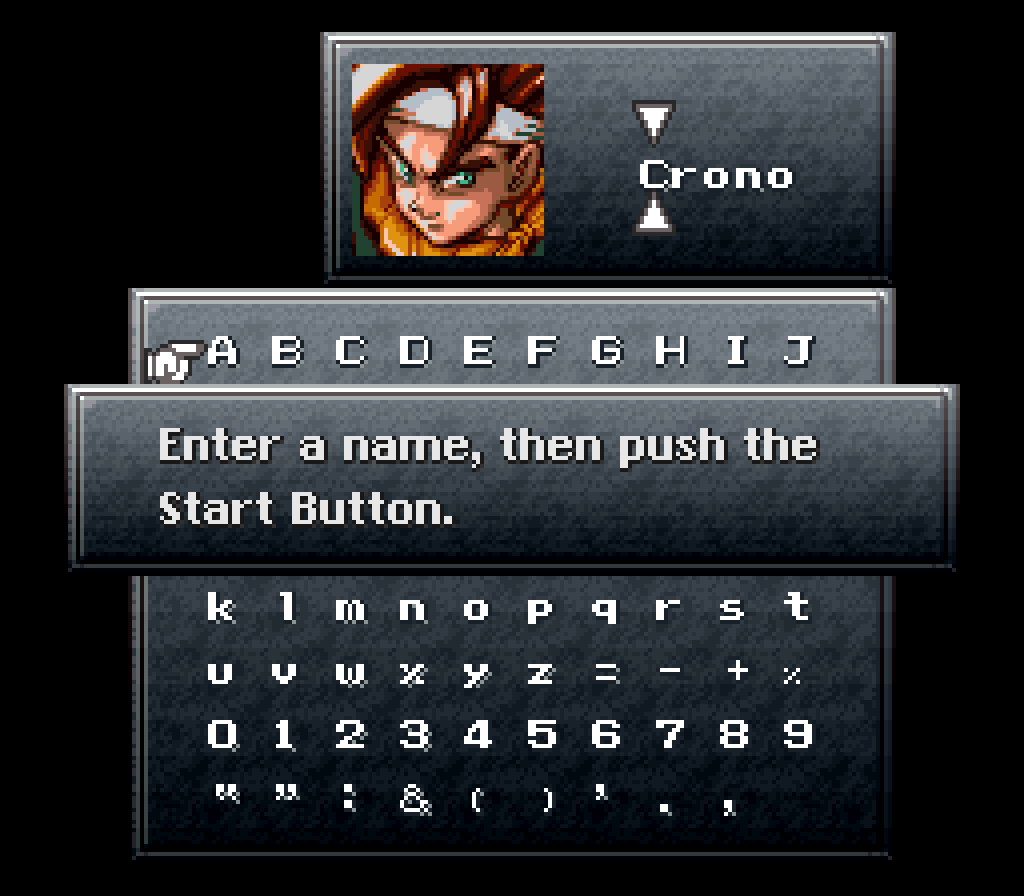
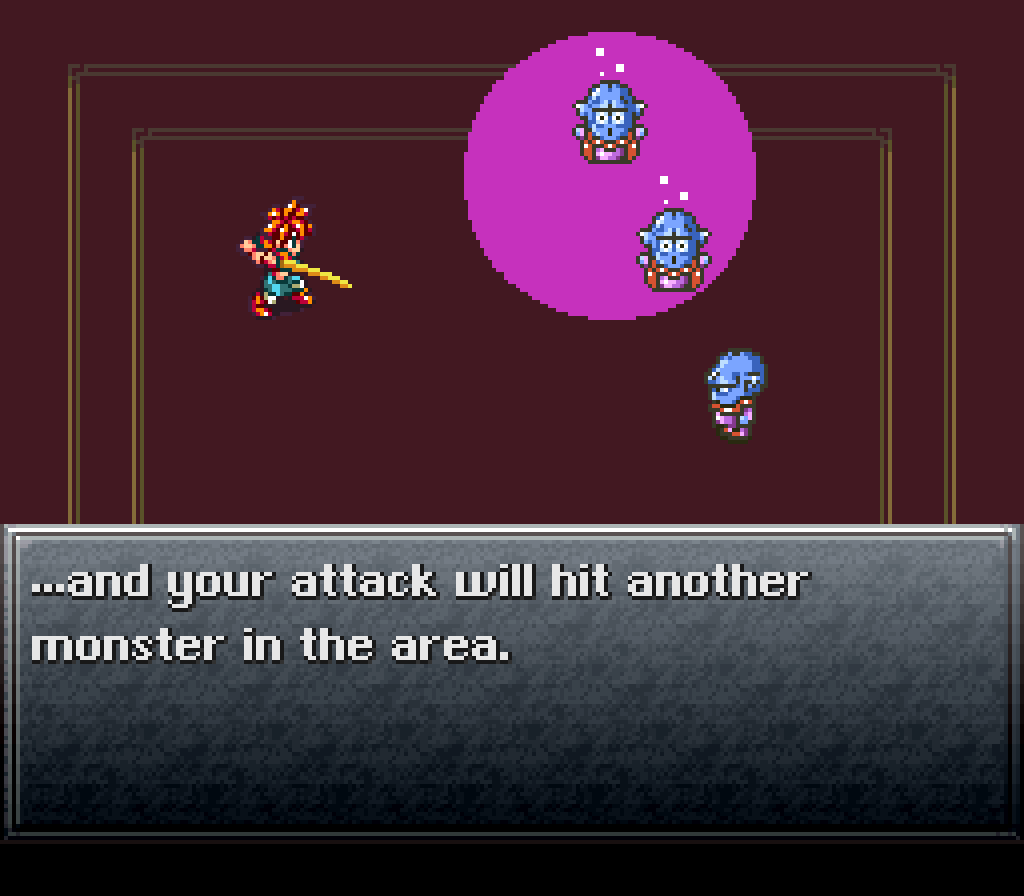
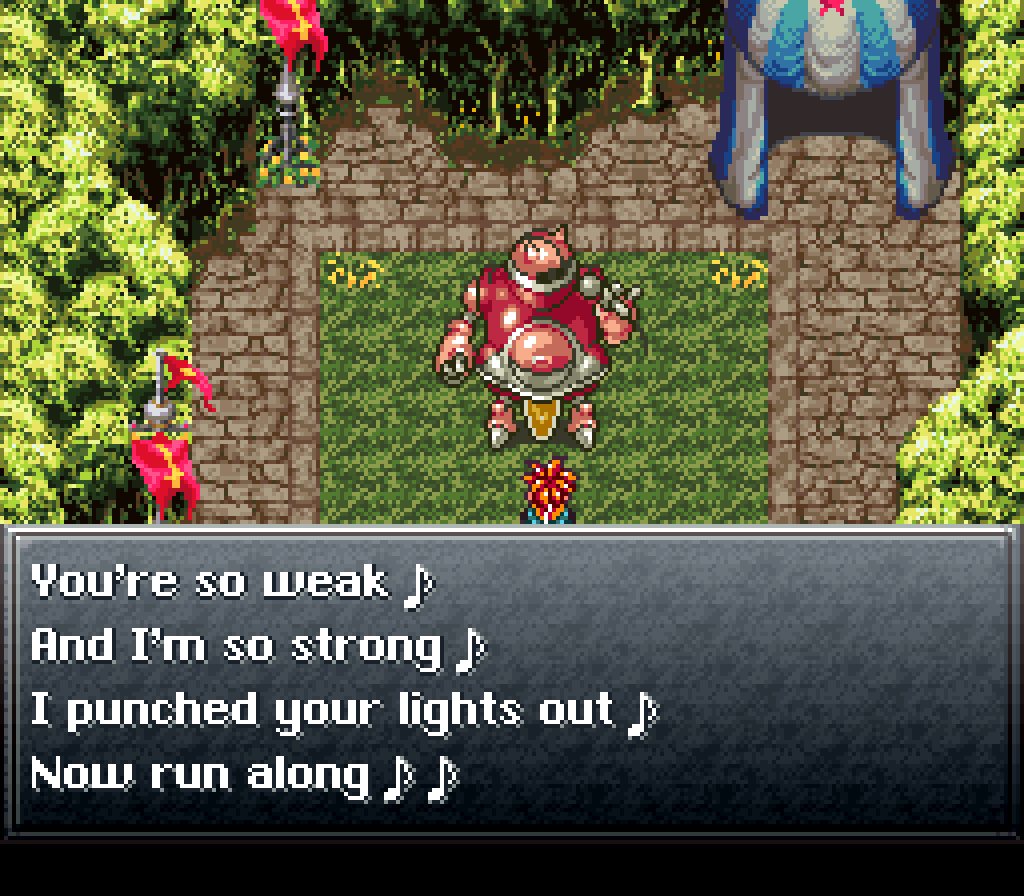
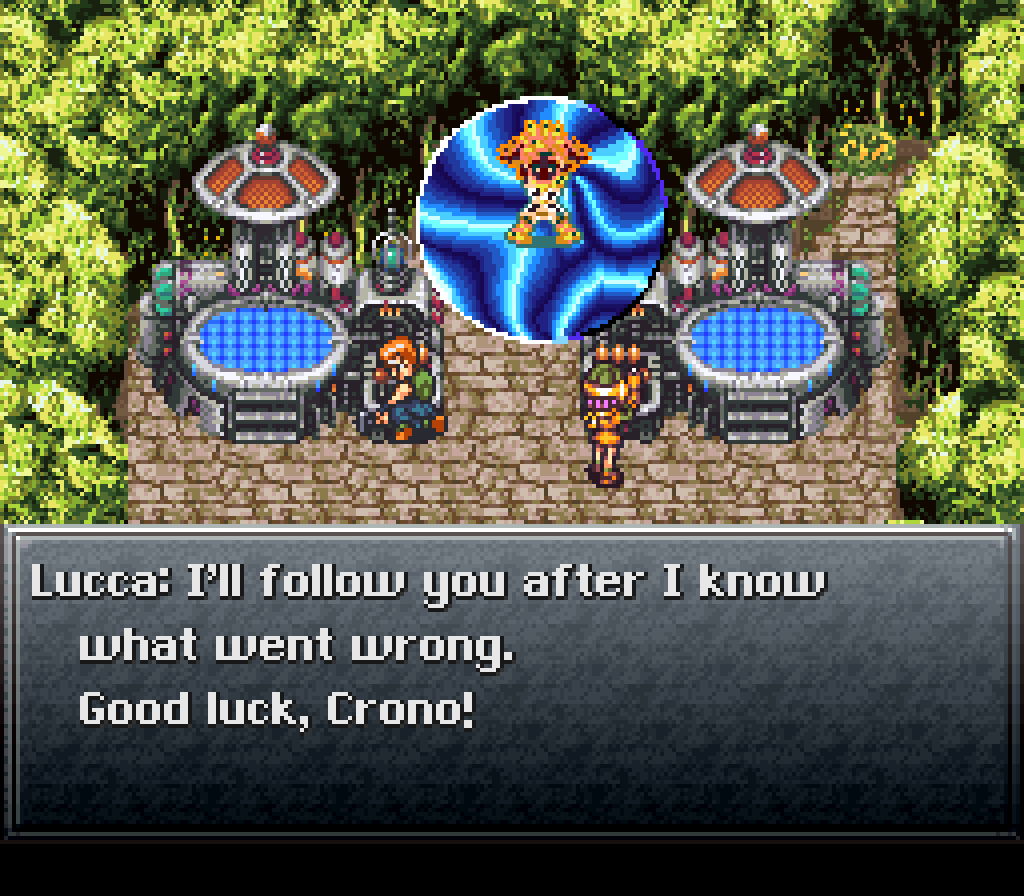
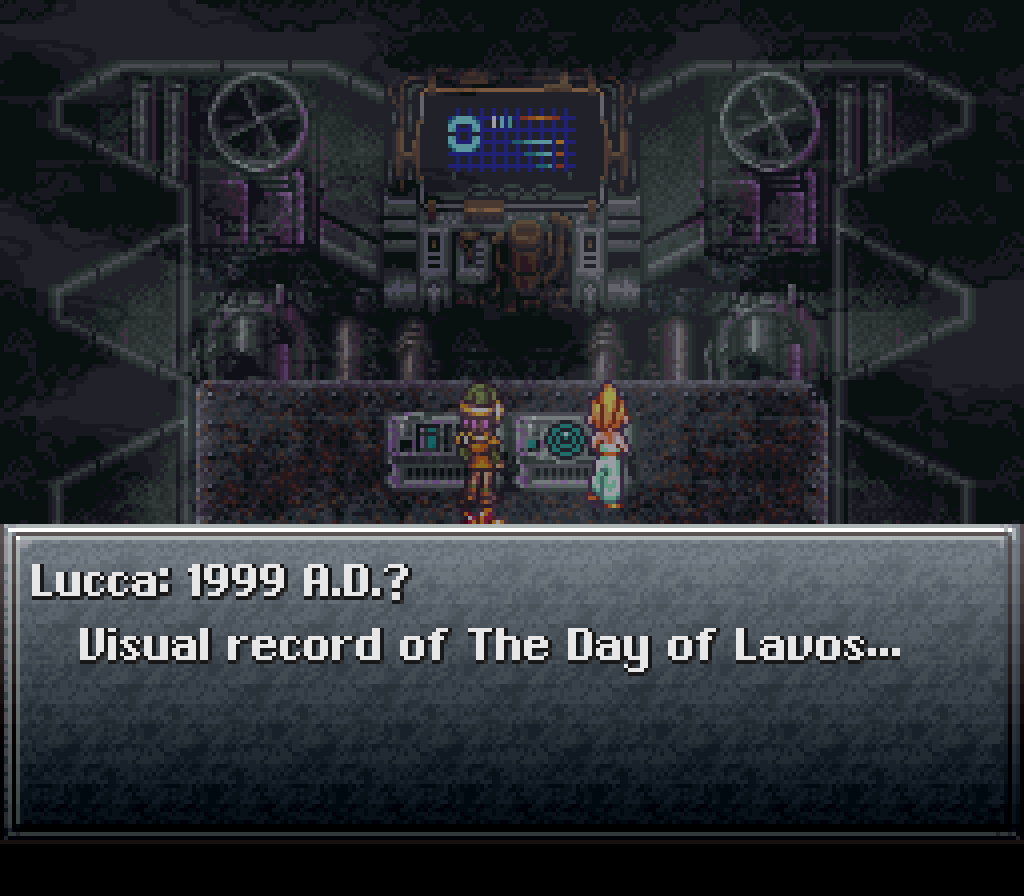
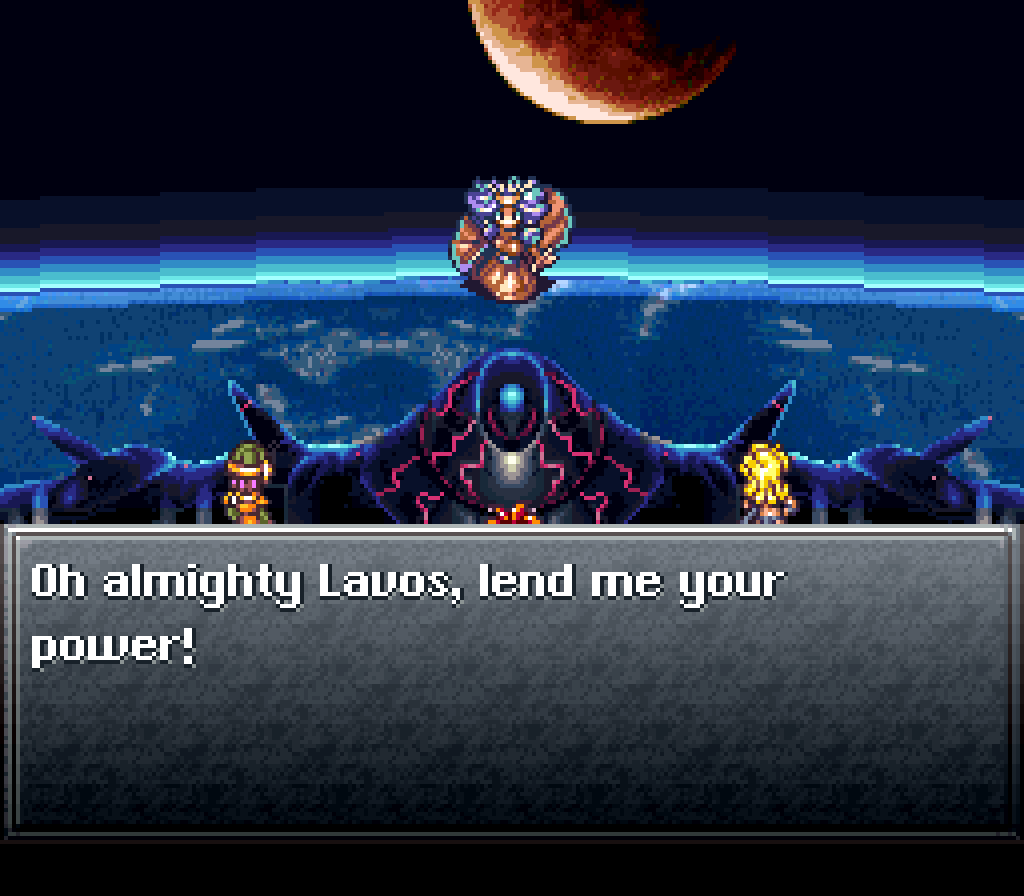
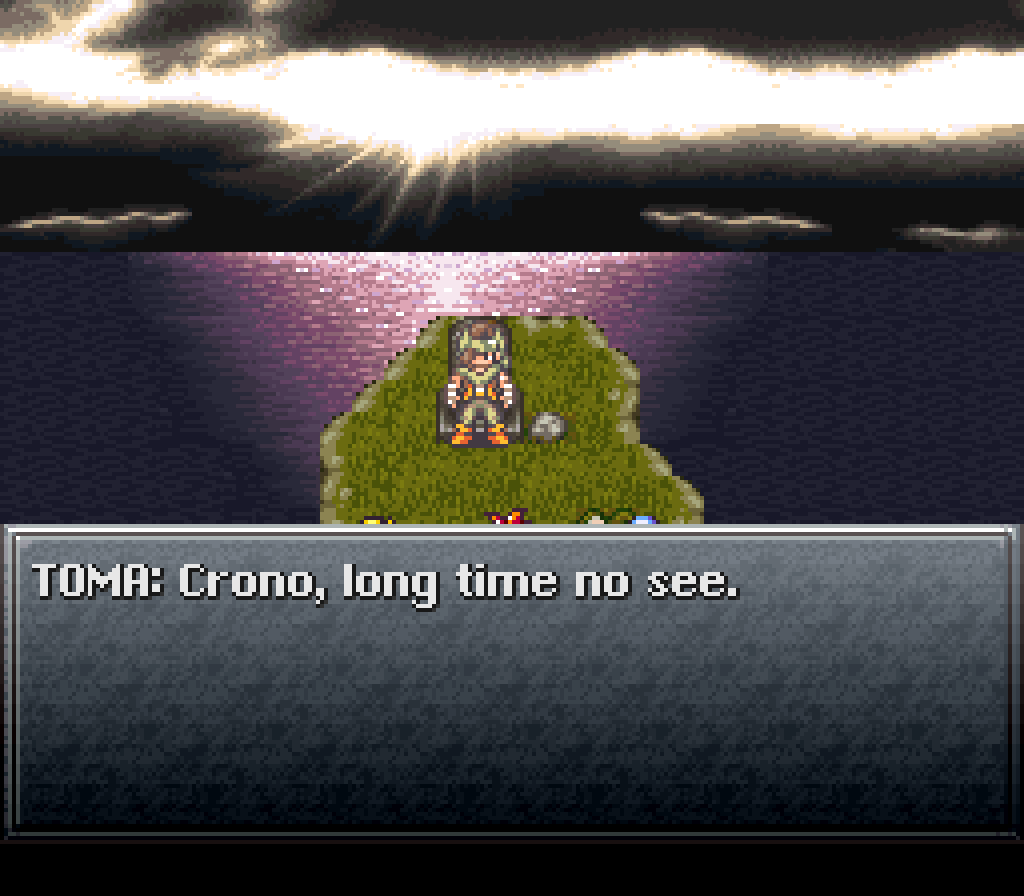
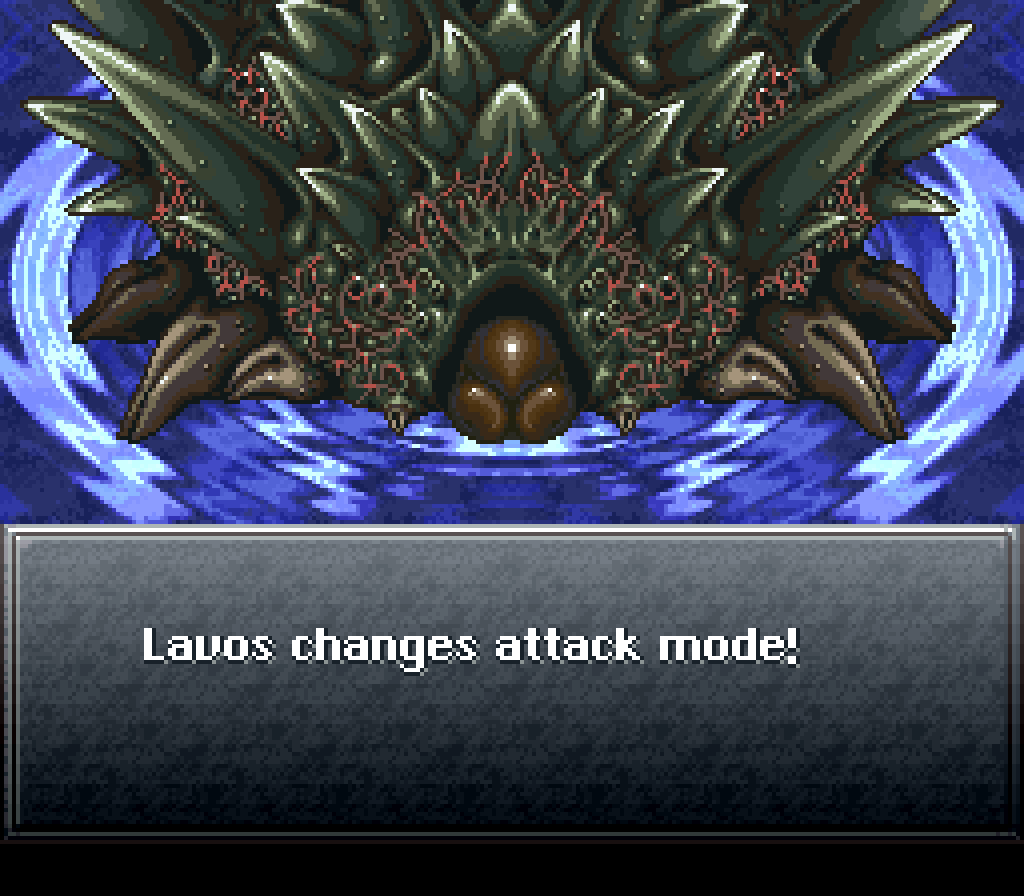

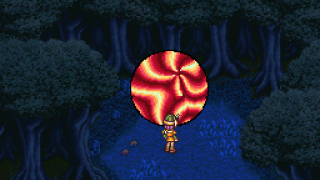
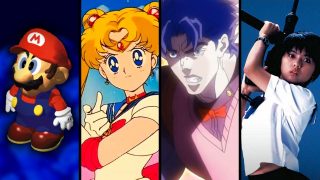
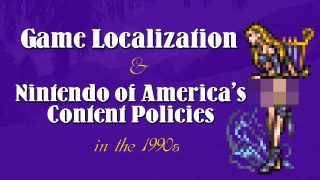
Big check-plus on “Iron Mic.” Never occurred to me, but it’s great.
Would age about as well as Mike Tyson’s Punch-Out!!
Guts went berserk in that boxing match.
The French version of the DS release (and maybe the original French SNES, though I never played that translation, if it exists) has his name as Gonzalez. I always wondered why it was changed… now I know!
Normally, a lot of Japanese voices in anime tend to sound the same to me (boy, i hope that doesn’t come off as racist). However, the cat-thing in that OVA clip sounded familiar to me, so i looked it up. Turns out it’s played by Luffy’s Japanese voice actress. Neat.
Unlike the Final Fantasy games, Chrono Trigger is a game which i played the original translation of a bunch when i was a kid. However, despite that, i still prefer the newer translation of the DS port.
I had always figured he was “Gato” because of the cat ears. Never knew it was some Japanese cultural thing.
Why did Gonzalez stretch out “ore”? Were the writers cheating to make sure those lines were long enough?
“This matches with how the DS translator re-translated Final Fantasy VI too: popular terms and lines were often kept unchanged from the Super NES version, or were at least touched up slightly to improve things.”
Oddly enough “Good morning, Crono!” was changed, even though they apparently used that line in advertisements for the remake.
“apparently used that line in advertisements”…
The first magazine ad was just a black page with a “Good morning, Crono!” dialog box about a third of the way down the page, with SquareEnix and DS logos at the bottom.
“I always had trouble getting the English lyrics to match the song just right”
http://ocremix.org/remix/OCR00313
Quick shout out to two of the greatest Gato theme remixes of all time: https://www.youtube.com/watch?v=EpDb9VN2pFs and its sequel https://www.youtube.com/watch?v=2zGeN2pUVM4
I dunno… To me, it doesn’t sound like they tried very hard (or well) to make the lyrics fit in English. :/ Tho, even the Japanese is a bit weird.
> I always had trouble getting the English lyrics to match the song just right, but then again I have zero musical talent so that’s probably my own fault.
No, there is actually a major flaw in the way the lyrics are presented in the English SNES version of the game, which is that there aren’t enough syllables in the third line, and there are too many syllables crammed into the fourth line. The song has a pretty simple and straightforward melody that consists of four measures, and it’s very easy to sing the four lines of text in the Japanese version to each measure in turn (and the OAV confirms that’s how it’s supposed to be sung, even though it uses 「シルバーポイント」 instead of 「十五ポイント」. I wonder if the reason for that was that the developers thought 「シルバーポイント」 sounded better all along, but because in the game, it was important for a player trying to gather Silver Points that they know exactly how many points they can get for each action, they changed it to 「十五ポイント」, and in the OAV, there was no need for a player to pass any challenges, and I don’t think (trying to recall an OAV from over 20 years ago that I saw probably over 10 years ago) anyone ever actually spent their Silver Points anyway, so they could just keep 「シルバーポイント」 as part of the lyrics.)
But in the English SNES version, the line “beat me up” is much too short, and the line “and earn 15 Silver Points” is much too long, to be sung to melodies that are of equal length and equal complexity (they both have intervals that are mostly single steps on the scale and emphasize the first and third beats, unlike the first two lines which both have some emphasis on all four beats) in any way that sounds natural. (And, come to think of it, this parallels the problem with Ted Woolsey’s lyrics for the opera scene in FF6, which is that they tend to fit pretty naturally at the beginning of each musical phrase, but then they trail off and no longer really fit anything.) That’s probably why Tom Slattery, in translating the GBA version, kept the first two lines the same, but rewrote the third and fourth line to fit the melody better.
And I’m really impressed by how well those new lines work, but I also find that the SNES lyrics can be sung and made to sound pretty reasonable if you just shift the words “and earn” from the fourth line to the third. I actually slapped together a musical score with MuseScore and GIMP to show how this works; it shows the melody of the song as it’s heard on the game’s soundtrack, annotated with the lyrics in Japanese, roumaji, and English (from the SNES version of the game.) Note that, at the end of the first and second lines, there’s a lead-in to the next line that consists of two sixteenth notes. These notes aren’t sung by Gonzales in the OAV, and frankly, just from looking at the Japanese text, it’s kind of obvious that they aren’t supposed to be sung, because there would have to be some phrase with 1 or 2 syllables at the end of those lines that fits better into the following line than the line it’s at the end of, so I’ve followed suit and arranged the English lyrics so that the lead-ins are not sung. Also, I replaced the kanji and the number 15 in the original Japanese text with kana to make it clearer how the notes correspond to each syllable. (Actually, it occurs to me that I’ve never seen a musical score with lyrics written in Japanese. Are they normally even written with kanji?)
I feel like there’s still a bit of a problem with the second line in this version, though, and even in the GBA version (since it keeps the same first and second lines.) It doesn’t sound right for the word “I” to be stretched out past the second beat of the measure, because the melody for that line puts emphasis on all four beats, and the Japanese lyrics do actually reflect this emphasis (both syllables of 「オレ」 and the first and last syllable of 「強い」 fall on the beats.) So if I had the chance to rewrite the lyrics to this song in the SNES version of the game, I think this is the way I’d write them:
They call me Gato ♪
Boxing champ with metal joints ♪
Beat me up and earn ♪
Fifteen Silver Points! ♪
(Or “robot of cat type; metal joints” works for the second line as well, if you want to grossly overestimate the English-speaking audience’s ability to understand Japanese pop culture references!)
These lyrics would allow the emphasis given by the melody to fall on the most important words in each line: on the first line, “they”, “call”, and both syllables of “Gato”, on the second line, “boxing”, “champ”, “metal”, and “joints”, on the third line, “beat” and “up”, and on the fourth line, “fifteen” and “points”.
(Useless fact: this song is in D minor, but the only accidental that key has, which is B flat, is never actually used in the melody, so if you want to play it on a keyboard, you can essentially treat it as if it was in C major.)
Incidentally, I knew that this character was called “Gonzales” in the Japanese version of Chrono Trigger, and like everyone else, I assumed the reason he was called “Gato” in the English version was partly because it’s a Spanish name that fits with the cat ears in his design, and partly to make it easier to write the song lyrics around that name, but I never knew anything about “El Gato” González being so famous in Japan, or the name “Gonzales” being culturally associated with powerful fighters. That’s very interesting.
Hey, something I’ve been meaning to ask, I’ve heard that you shouldn’t learn Japanese from games and anime, because they speak in a weird way that sounds bizarre in real life. I believe it, but what are the differences exactly? I haven’t seen a website go over the details before, and it’d be nice to have a concrete source.
I’ve heard that before, but these people ignore that there’s a large amount of game, cartoons, and comics with realistic stories and dialogue.
Yeah, I’d be surprised if nothing ever had realistic dialogue. But then again, you wouldn’t know how to distinguish if you were a beginner.
A good number of anime and games speak in ways that people do not speak in real life. It’s best not to imitate those exaggerated speaking styles at all, especially if they involve over the top yelling.
At the end of the day, it’s a bizarrely Japan-centric way of saying “you shouldn’t learn foreign languages from video games and cartoons”. Surely you can agree that Looney Tunes and The Simpsons don’t accurately represent the way normal English speakers talk in real life and that people that have learned English solely by studying cartoons would sound ridiculous if they went to America and started talking like Bugs Bunny to people, but can you explain the difference between “the English used in The Simpsons” and “real life English”?
It’s basically just that. Fiction can be a good studying tool that gets you exposed to grammar, vocabulary, tone and pronunciation, but it’s very rarely an accurate representation of how real humans talk in real life situations unless it’s some artsy production that very specifically tries to do that. This goes for all languages.
That said, the kind of people that push these statements tend to imply you should take classes and learn from textbooks instead, which… honestly rather implies these people have never learned a second language in their lives, otherwise they’d know that the kind of example conversations in textbooks and the kind of dialogues you have in class ALSO involve people talking in weird ways that sound completely bizarre in real life.
I would say that the Looney Tunes and the Simpsons speak pretty natural English, actually. I mean, yeah, they say things that people wouldn’t automatically come up with in real life and speak in weird voices, but they use words and phrase sentences in ways that a normal English speaker would if given time to think them up.
The contention with Japanese is that anime speech is so stylized that it’s misleading, especially stuff aimed at otaku culture. The example I was given is how anime Japanese tends to use gender markers to signal that a character is ‘boyish’ or ‘effeminate’, but in spoken Japanese, would come across as a grammatical error. Or how anime would make you think that *baka* is a mundane word used by anime girls, but it’s actually an aggressive insult associated with yakuza.
That’s weird. I heard from several places that “baka” is only slightly more offensive than the English word “idiot”, unless you’re from Kansai.
I would like to point out that in the 90s there was a magazine called Mangajin that revolved around using bits of manga to teach Japanese.
Whoever gave you that example has no idea what he’s talking about, and should not be listened to.
That thing about baka is … completely inaccurate. Whoever told you that was horribly wrong.
Ah, Gato. The true super fighting robot all robots aspire to!
Fun fact: Gato is voiced by Kenpachi’s VA from Bleach. He sounds so different (likely because he was younger then), it was quite the surprise to find out.
Even better, he’s also the voice of Gendo Ikari from Evangelion!